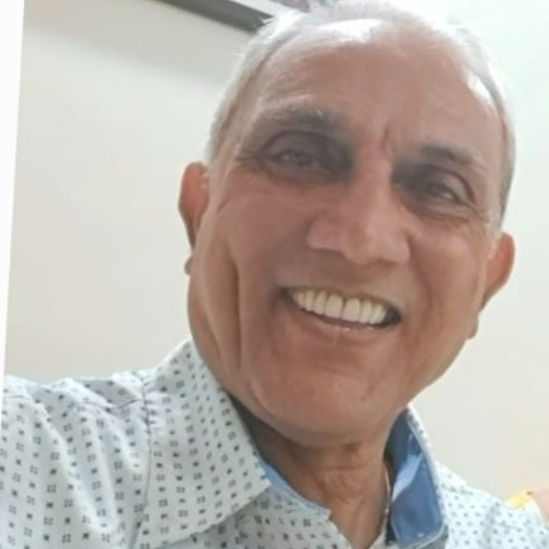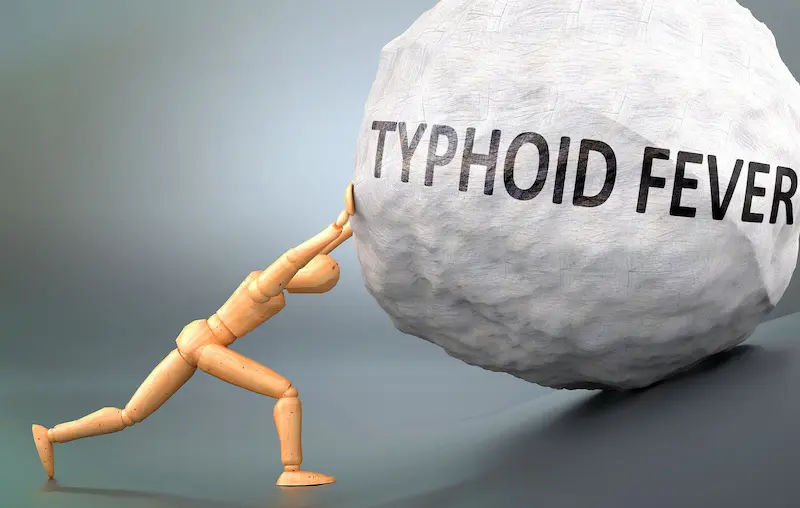Guide to Comprehensive Guide To Stress And Its Management
Discover a complete guide to stress management, including symptoms, causes, and effective techniques for a calmer, healthier life.


Introduction
Feeling overwhelmed, constantly wired, or emotionally drained? You're not alone. Stress is a universal human experience, a natural reaction to the demands and challenges of life. While a certain amount can be motivating, chronic, unmanaged stress can wreak havoc on your physical health, mental well-being, and overall quality of life. This comprehensive guide to stress and its management is designed to be your go-to resource. We'll move beyond simplistic tips and delve into a holistic understanding of what stress is, how to identify its unique signs in your life, and, most importantly, equip you with a practical, multi-faceted toolkit of evidence-based strategies to manage it effectively. Whether you're dealing with daily pressures or significant life changes, this guide will help you build resilience and reclaim a sense of calm and control.
What Exactly Is Stress? More Than Just a Feeling
Stress is your body's automatic response to any demand or threat, real or perceived. When you sense danger—whether it’s a looming deadline or an unexpected bill—your body kicks into high gear, releasing a cascade of hormones to prepare you for "fight or flight."
Eustress vs. Distress: The Two Sides of the Coin
Not all stress is bad. Eustress is the positive form of stress. It's the excitement you feel before a wedding, the thrill of starting a new job, or the adrenaline rush from a challenging workout. Eustress is short-term, energising, and motivates you to achieve goals. Distress, on the other hand, is negative stress. It arises when challenges become overwhelming and persistent, like constant financial worries, a toxic work environment, or chronic illness. Distress is what we typically aim to manage.
The Biology of Stress: Your Body's Alarm System (The HPA Axis)
The central player in your stress response is the HPA axis (Hypothalamic-Pituitary-Adrenal axis). When stressed, your hypothalamus signals your pituitary gland, which then tells your adrenal glands to release hormones, primarily cortisol and adrenaline. These hormones:
- Increase your heart rate and blood pressure.
- Sharpen your senses.
- Flood your bloodstream with glucose for immediate energy.
This system is brilliant for short-term survival but damaging when constantly activated.
Recognising the Signs: The Symptoms of Chronic Stress
Chronic stress manifests in myriad ways, often tricking us into thinking we have separate health issues.
Physical Symptoms: When Your Body Bears the Burden
Your body often signals distress first. Common symptoms include:
- Frequent headaches or muscle tension (especially in the neck and shoulders)
- Digestive issues, such as stomach aches, diarrhoea, or constipation
- Weakened immune system, leading to more frequent colds and infections
- Sleep disturbances (insomnia or sleeping too much)
- Changes in appetite and weight
- Heart palpitations or chest pain
If you experience persistent chest pain or palpitations, it's crucial to consult a doctor to rule out cardiac issues. You can consult a doctor online with Apollo24|7 for a quick and convenient initial assessment.
Consult a Specialist for Personalised Advice
Emotional and Cognitive Symptoms: The Mind Under Pressure
Stress profoundly impacts your mental state. Look out for:
- Anxiety, restlessness, and a feeling of being constantly "on edge"
- Feelings of overwhelm, helplessness, or loss of control
- Irritability, anger, or short temper
- Difficulty concentrating, memory problems, and indecisiveness
- Constant worrying or a pessimistic outlook
Behavioural Signs: How Stress Changes Your Actions
Often, others notice these changes before we do:
- Social withdrawal and isolating oneself from friends and family
- Procrastination or neglecting responsibilities
- Increased use of alcohol, tobacco, or drugs as a coping mechanism
- Nervous habits like nail-biting, fidgeting, or pacing
Your Toolkit for Relief: Effective Stress Management Techniques
Managing stress isn't about elimination; it's about building resilience and employing the right tools at the right time.
Immediate Techniques to Calm Down in the Moment
When you feel a stress wave hitting, these tools can help you regain control quickly.
The 4-7-8 Breathing Method
This powerful technique activates your parasympathetic nervous system, telling your body to relax.
- Inhale quietly through your nose for 4 seconds.
- Hold your breath for 7 seconds.
- Exhale completely through your mouth, making a whoosh sound, for 8 seconds.
- Repeat the cycle 3-4 times.
The 5-4-3-2-1 Grounding Technique
This method uses your senses to anchor you in the present moment, pulling you away from anxious thoughts.
- Acknowledge 5 things you can see around you.
- Acknowledge 4 things you can feel (e.g., your feet on the floor, the texture of your shirt).
- Acknowledge 3 things you can hear.
- Acknowledge 2 things you can smell.
- Acknowledge 1 thing you can taste.
Lifestyle Adjustments for Long-Term Resilience
These are the foundational habits that fortify you against stress.
The Power of Regular Physical Activity
Exercise is a proven stress reliever. It lowers cortisol levels and boosts endorphins, your body's natural mood elevators. You don't need to run a marathon; a daily 30-minute brisk walk, a dance session in your living room, or a yoga class can work wonders. The key is consistency.
Nutrition for Nervous System Support
What you eat directly impacts how you feel. A diet high in processed foods and sugar can exacerbate stress responses. Focus on:
- Complex Carbohydrates: (e.g., whole grains) which can boost serotonin for a calming effect.
- Omega-3 Fatty Acids: (e.g., in fatty fish, walnuts) which may reduce anxiety.
- Magnesium: (e.g., in leafy greens, nuts) often depleted during stress.
- Staying hydrated: Dehydration can increase cortisol levels.
Prioritising Sleep Hygiene
Stress disrupts sleep, and poor sleep exacerbates stress, creating a vicious cycle. Break it by:
- Establishing a consistent sleep schedule (even on weekends).
- Creating a dark, cool, and quiet bedroom environment.
- Implementing a relaxing pre-bed routine (e.g., reading, taking a bath).
- Avoiding screens for at least an hour before bed.
Building Mental and Emotional Strength
Mindfulness and Meditation Practices
Studies show that regular mindfulness meditation can actually shrink the amygdala (the brain's fear centre) and
strengthen the prefrontal cortex (responsible for reasoning). Apps like Headspace or Calm offer great guided sessions for beginners. Even 5-10 minutes daily can build your capacity to observe stressful thoughts without being consumed by them.
Cognitive Reframing: Changing Your Thought Patterns
This involves identifying and challenging negative, stress-inducing thoughts. For example, instead of thinking, "I can't handle this project," reframe it to, "This project is a challenge, but I will tackle it one step at a time." This is a core component of Cognitive Behavioural Therapy (CBT).
The Importance of Social Connection
Don't underestimate the power of a strong support network. Talking through your problems with a trusted friend, family member, or partner provides an outlet, offers new perspectives, and releases oxytocin, a natural stress reliever. Make time for the people who uplift you.
When to Seek Professional Help
While self-help strategies are powerful, there are times when professional guidance is essential.
Signs Your Stress Needs Expert Intervention
Consider seeking help if:
- Your stress is causing significant distress or impairing your daily functioning at work, school, or in relationships.
- You are using alcohol, drugs, or other substances to cope.
- You have persistent feelings of hopelessness, depression, or are having thoughts of harming yourself.
- Your symptoms of chronic stress persist despite your best efforts with self-management.
Types of Professional Support Available
- Therapists/Counsellors: Can provide CBT and other therapies to develop coping skills.
- Psychiatrists: Medical doctors who can diagnose underlying conditions and prescribe medication if needed (e.g., for anxiety disorders exacerbated by stress).
- Primary Care Physician: Can rule out physical health conditions that mimic stress symptoms (e.g., thyroid issues) and provide referrals.
If your condition does not improve after trying these methods, book a physical visit to a doctor with Apollo24|7 for a comprehensive evaluation. They can also guide you on relevant tests; for instance, Apollo24|7 offers convenient home collection for tests like vitamin D or HbA1c, which can be impacted by chronic stress.
Conclusion
Navigating the complexities of stress is a journey, not a destination. This comprehensive guide to stress management has provided you with a map—from understanding the underlying biology to equipping you with a diverse set of practical tools. Remember, the goal isn't to create a life entirely free of stress, but to build the resilience to meet challenges with grace and strength. It's about knowing when to use a quick breathing technique, when to prioritise a walk over another hour of work, and when to reach out for connection or professional support. Start small, be consistent, and be kind to yourself throughout the process. You have the power to cultivate a calmer, more balanced life. Begin today by choosing one technique from this guide and implementing it.
Consult a Specialist for Personalised Advice
Consult a Specialist for Personalised Advice

Dr Suseela
General Physician
5 Years • MBBS
Bengaluru
Apollo Medical Center, Marathahalli, Bengaluru

Dr. Mainak Baksi
General Practitioner
13 Years • MBBS , MD (MPH)
Howrah
Mainak Baksi Clinic, Howrah
(50+ Patients)

Dr. Rajib Ghose
General Physician/ Internal Medicine Specialist
25 Years • MBBS
East Midnapore
VIVEKANANDA SEBA SADAN, East Midnapore

Dr. Mahendra B Mehta
General Practitioner
46 Years • MBBS
Mumbai
BE WELL POLYCLINIC, Mumbai

Dr. Kanjani K C
General Practitioner
48 Years • MBBS
Ahmedabad
Asha clinic, Ahmedabad
Consult a Specialist for Personalised Advice

Dr Suseela
General Physician
5 Years • MBBS
Bengaluru
Apollo Medical Center, Marathahalli, Bengaluru

Dr. Mainak Baksi
General Practitioner
13 Years • MBBS , MD (MPH)
Howrah
Mainak Baksi Clinic, Howrah
(50+ Patients)

Dr. Rajib Ghose
General Physician/ Internal Medicine Specialist
25 Years • MBBS
East Midnapore
VIVEKANANDA SEBA SADAN, East Midnapore

Dr. Mahendra B Mehta
General Practitioner
46 Years • MBBS
Mumbai
BE WELL POLYCLINIC, Mumbai

Dr. Kanjani K C
General Practitioner
48 Years • MBBS
Ahmedabad
Asha clinic, Ahmedabad
More articles from General Medical Consultation
Frequently Asked Questions
What's the difference between stress and anxiety?
Stress is typically a response to an external trigger (a deadline, an argument) and usually subsides once the situation is resolved. Anxiety is persistent, excessive worry that doesn't go away even in the absence of a stressor. While stress can cause anxiety, an anxiety disorder is a separate mental health condition.
Can stress make you physically sick?
Absolutely. Chronic stress suppresses the immune system, making you more susceptible to infections like the common cold and flu. It can also exacerbate existing conditions like asthma, IBS, and heart disease, and lead to issues like high blood pressure.
What are the best natural supplements for stress relief?
Some supplements have evidence supporting their use for stress, including;
- Ashwagandha: An adaptogen shown to lower cortisol levels.
- L-theanine: An amino acid found in green tea that promotes relaxation without drowsiness.
- Magnesium: Crucial for nervous system regulation.
Always consult with a doctor before starting any new supplement regimen.
How long does it take for stress management techniques to work?
Immediate techniques (like breathing) work within minutes. The effects of lifestyle changes (exercise, meditation) build over time. You may notice improvements in sleep and mood within a few weeks, but significant changes in resilience often take 2-3 months of consistent practice.
Is there a test to measure my stress levels?
While there is no single definitive test, doctors can measure cortisol levels via saliva, blood, or urine tests. However, these are usually only done if a disorder like Cushing's syndrome is suspected. The best 'test' is often an honest self-assessment of your physical, emotional, and behavioural symptoms.




 A Targeted Cancer Treatment Guide.webp)